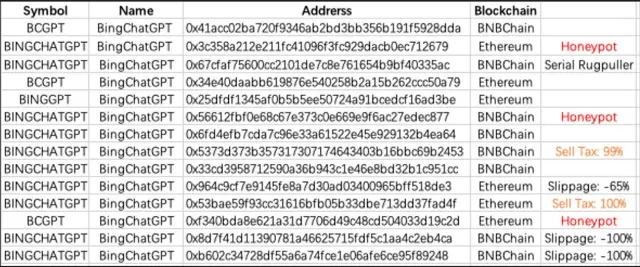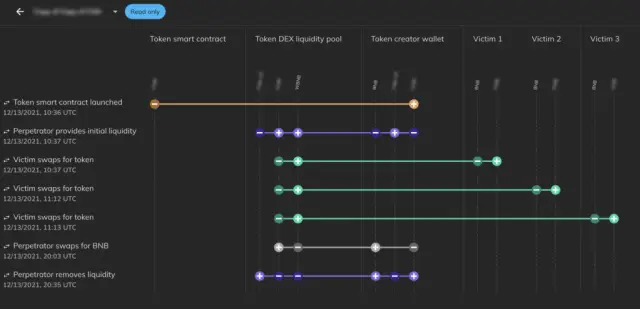‘Pump & Dump’ Tokens For BingChatGPT Are Multiplying: PeckShield

On Twitter, blockchain security startup PeckShield spotted hundreds of ChatGPT-related pump-and-dump coins.
After discovering hundreds of ChatGPT-related coins, blockchain security firm PeckShield sounded the alert.
In a Feb. 20 publication, the firm disclosed that at least three “BingChatGPT” tokens appear to be honeypot schemes—smart contracts that deceive users into contributing Ethereum, which the attacker catches and collects.

In a “pump and dump” or “rug pull,” at least two of the tokens detected by PeckShield have lost over 100% of their value, while a third has lost 65%.
The developers of a pump-and-dump scam usually mislead investors into buying tokens, then sell their share as values rise.
At least one of the bad actors behind the tokens, “Deployer 0xb583,” is responsible for creating “dozens of tokens with a pump & dump scheme,” said PeckShield.
PeckShield could not explain why the fraudsters named their tokens BingChatGPT, but they may be trying to capitalize on OpenAI’s ChatGPT software being incorporated into Bing and Microsoft Edge on Feb. 7.
The token’s name may be a ploy to make victims think they’re connected to Microsoft and capitalize on AI chatbot excitement.
Chainalysis, a blockchain analytics firm, said on Feb. 16 that approximately 10,000 2022 tokens displayed pump-and-dump tendencies on-chain.
Last year, 1.1 million tokens were issued, but only 40,521 had a “effect on the crypto ecosystem” with at least 10 swaps across four consecutive days of trading in the week after their introduction, according to Blockchain analytics.

“Of the 40,521 tokens launched in 2022 that gained sufficient traction to be worth analyzing, 9,902, or 24%, saw a price decline in the first week indicative of possible pump and dump activity,” the firm said.
The firm determined that 25 tokens “were very probably meant for a pump and dump” and featured malicious honeypot programming that prevented new buyers from selling the token.
Nhận xét
Đăng nhận xét